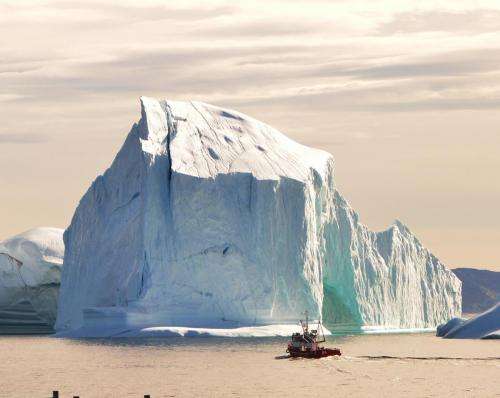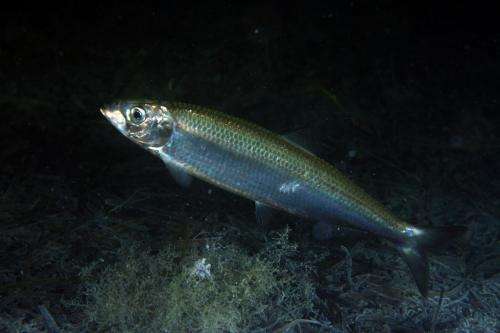Climate change redistributes fish species at high latitudes

For millions of years, large parts of the marine biotas of the North Atlantic and North Pacific have been separated by harsh climate conditions in the Arctic. A new study published in Nature Climate Change underlines that climate change has begun to weaken this natural barrier promoting the interchange of fishes between the two oceans along with many ecological and economic consequences.
Dr. Mary S. Wisz (DHI, Denmark), formerly of the Arctic Research Centre, Department of Bioscience, Aarhus University, co-lead the study as part of an international research team representing diverse fields of fish taxonomy, trophic ecology, fisheries science, climatology, oceanography, and ecological modelling.
The team's results based on predictive ecological modelling, shows that Arctic warming promotes the interchange of fishes between the North Atlantic and North Pacific Oceans via the Northwest and Northeast Passages as sea temperatures and productivity increase at high latitudes.
The last time the environmental conditions allowed such large-scale transfer to occur was nearly three million years ago during the opening of the Bering Strait, which facilitated the spread of mostly Pacific marine species toward the Atlantic.
Redistribution of species and interchange will cause a tremendous increase in fish biodiversity in coastal areas around e.g. Greenland and Svalbard, and thus dramatic changes to interactions between species.
History has shown that such biotic interchange can result in severe ecological consequences. For example, the construction of the Suez Canal in 1869 resulted in the invasion of the Mediterranean Sea by Red Sea marine fauna. The Mediterranean fish community is now dominated by Red Sea fishes, and this has had harmful ecological and economic consequences for Mediterranean biodiversity and its fishing industry.
The newly published work foresees that some commercial species will extend their range at higher latitudes and potentially increase fish yields. However, these fish populations will also encounter new ecological contexts with climate change, such as competition between existing and invading species. The coming decades will therefore present new challenges and opportunities for North Atlantic and North Pacific fisheries, which today contribute almost 40% to commercial fish landings, globally.

More information: Nature Climate Change, www.nature.com/nclimate/journa … ll/nclimate2500.html
Journal information: Nature Climate Change
Provided by Aarhus University





















